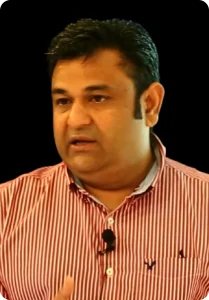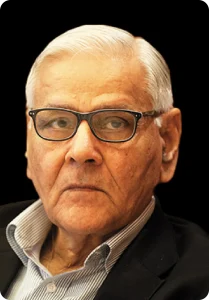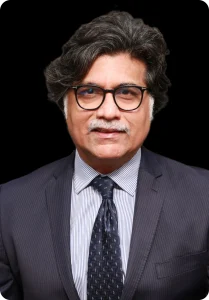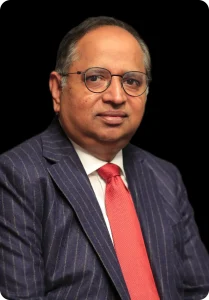The Economic Times
The Companies Act 2013 that came into effect in April 2014 in India created a mandate for large companies to spend 2% of their net profits on Corporate Social Responsibility (CSR). The mandate gave an impetus to CSR in India, both as a concept and as a practice. India now has almost every corporate having CSR at its core of strategic decision-making process. A conscious attempt is being made to integrate CSR with business goals for healthy economic, social and environmental impact.
Corporates have realised that the most important tool to measure the company’s holistic growth and success is through the impact it creates on social surroundings. Almost all corporates now seek to create impactful CSR stories.
As UK-based businesswoman Anita Roddick, said, “The business of business should not be about money. It should be about responsibility. It should be about public good, not private greed.” Similar sentiment seems to be running across corporates in India. A sense of responsibility towards the society and public good has seeped into the corporate world. Businesses in India are now taking innovative initiatives to go beyond businesses and work for the nation at large.
The Economics Times celebrated and highlighted the CSR initiatives of a host of businesses with the release of its third annual ‘The Economics Times CSR Compendium’ on March 27 in New Delhi, with Goodera as the CSR Technology Platform Partner.
The Compendium aims to highlight the good work done by companies while fulfilling their CSR goals. The initiatives taken up by the corporates are spread across various fields including, education, skill development, healthcare, sanitation, road safety, and many such nation-building programmes.
The chief guest, Ravi Shankar Prasad, Union Minister for Law & Justice, Electronics & Information Technology, who was felicitated by Deepak Saluja (Director-Response, BCCL) and Javed Sayed (Deputy Executive Editor, ET) launched the third edition of the ET CSR Compendium. In his address, the minister said that the Compendium gives a glimpse of a metamorphosis happening in the corporate world of India. He stressed that initially, CSR was an individual choice; it wasn’t carried out in a structured format. He explored the fundamental philosophy that underpins CSR and differentiates it from philanthropy. The latter is a form of generosity and charity. But CSR is not charity. Rather, it is a social commitment ingrained in the corporate culture today. It is a model of changing India. Yearning for change has enveloped the country, he said while stressing that this social commitment will take us all to the new India that one hopes and dreams of.
This was followed by the ‘Leadership Address’ moderated by Sanjiv Kaura, CEO-CSR, BCCL. The panel consisted of Vikram Kirloskar, Vice Chairman, Toyota Kirloskar Motors; Richard Rekhy, former CEO, KPMG in India; Debasish Mitter, Director, Michael & Susan Dell Foundation India LLP; and TK Arun, Editor Opinion, ET.
The panel saw Vikram Kirloskar talking about ‘Gearing for deeper social impact through CSR’. He spoke about how the country needs programmes like ‘ABCD’ (A behaviourally changed demonstration) for sustainable development. “We don’t differentiate between our business and non-business models. The need is to create models, processes and methods which can be replicated and scaled up across various sectors for not just individual or company growth, but for the growth of the society at large,” he said.
Talking about ‘The changing landscape of doing good in corporate India’ from the leadership perspective, Richard Rekhy, elaborated, “A leader should lead by example; he should inspire. One quality which is very crucial to look at while hunting for talent is ‘character’. The combination of character and efficiency can bring in great results, both in business and CSR. It is not just about change; it is about how we, as individuals, are helping to bring about the desired change.”
While discussing how CSR is an opportunity for transformative change in India, Debasish Mitter pointed out three components linked to CSR: First, the social change which is driven by government, private enterprise and the civil society; second is the use of technology which adds value to CSR and helps create an impact through technological innovations; and third is the collaboration between the government, the corporate world and the society, who need to work in tandem to change the social sector.
According to Janhavi R Dhariwal, Founder, Rasiklal Manikchand Dhariwal Foundation, “Sustainability is the most important enabler of success, be it in business or in CSR. You can’t give shape to a great business idea if it is not sustainable. Likewise, if CSR initiatives are not sustainable, then the good work that started doesn’t last long.”
Accountability and technology are another aspects that can’t be ignored when it comes to CSR, echoed the panel. “Anything we do needs accountability, especially in India. The moment we integrate technology with CSR, it brings in accountability and value-add to CSR initiatives,” said Raghav Beriwala, Director, Shyam Steel.
As Premchand Kashyap, MD, KYB Conmat rightly said, CSR is a lot more than just a clause in the corporate law book. Working for the society should be in-built in us; we should be passionate about building a culture of volunteering towards nation-building.
Nilovna Ghosh, DGM-CSR, Essar Foundation, added, “We have done a great job in taking CSR as a mandate, but gradually most of the companies are beginning to understand that it is not just about compliance; it is also about doing the work with strategic planning and management. Rural development sector is a complex arena; the targets cannot be achieved without taking people together. We need niche talent who are skilled to do this intense job. The businesses have understood this completely, and so far, the transition has been great.”
The event was concluded by TK Arun, who stressed on the need for the corporates to be responsible, “Young people want to work with companies that are responsible. If you want talent you must be responsible. The companies need to go beyond just checking the box; only then will they gain respect” The result-oriented and responsible approach to CSR is all we need to make India’s social future a whole lot better















































